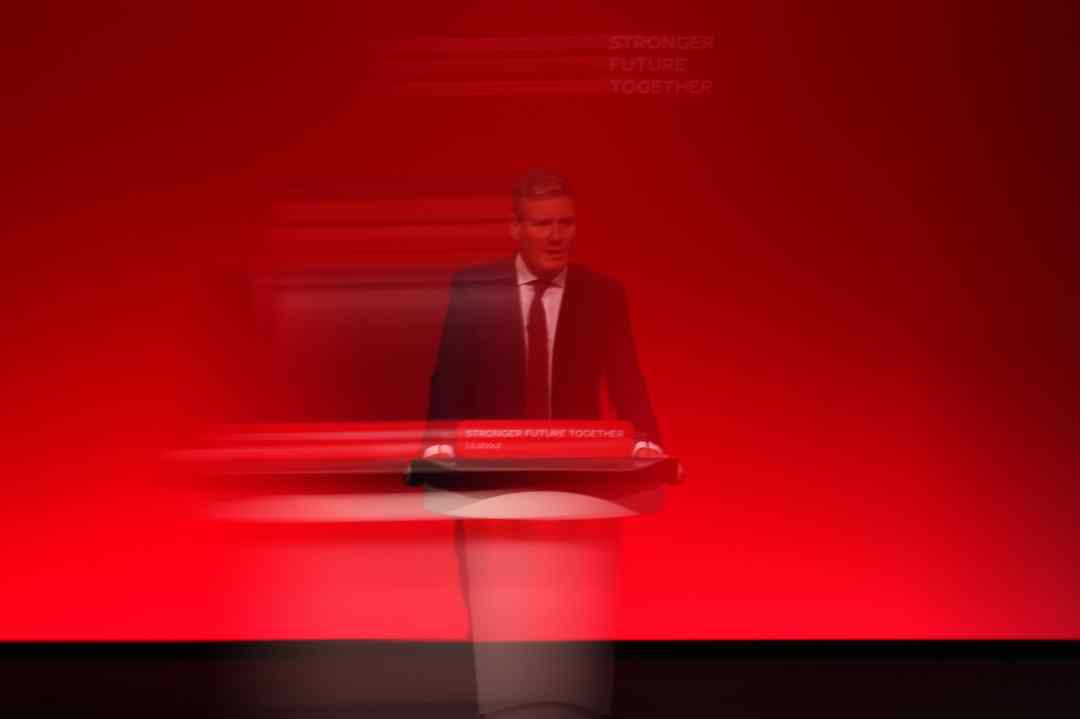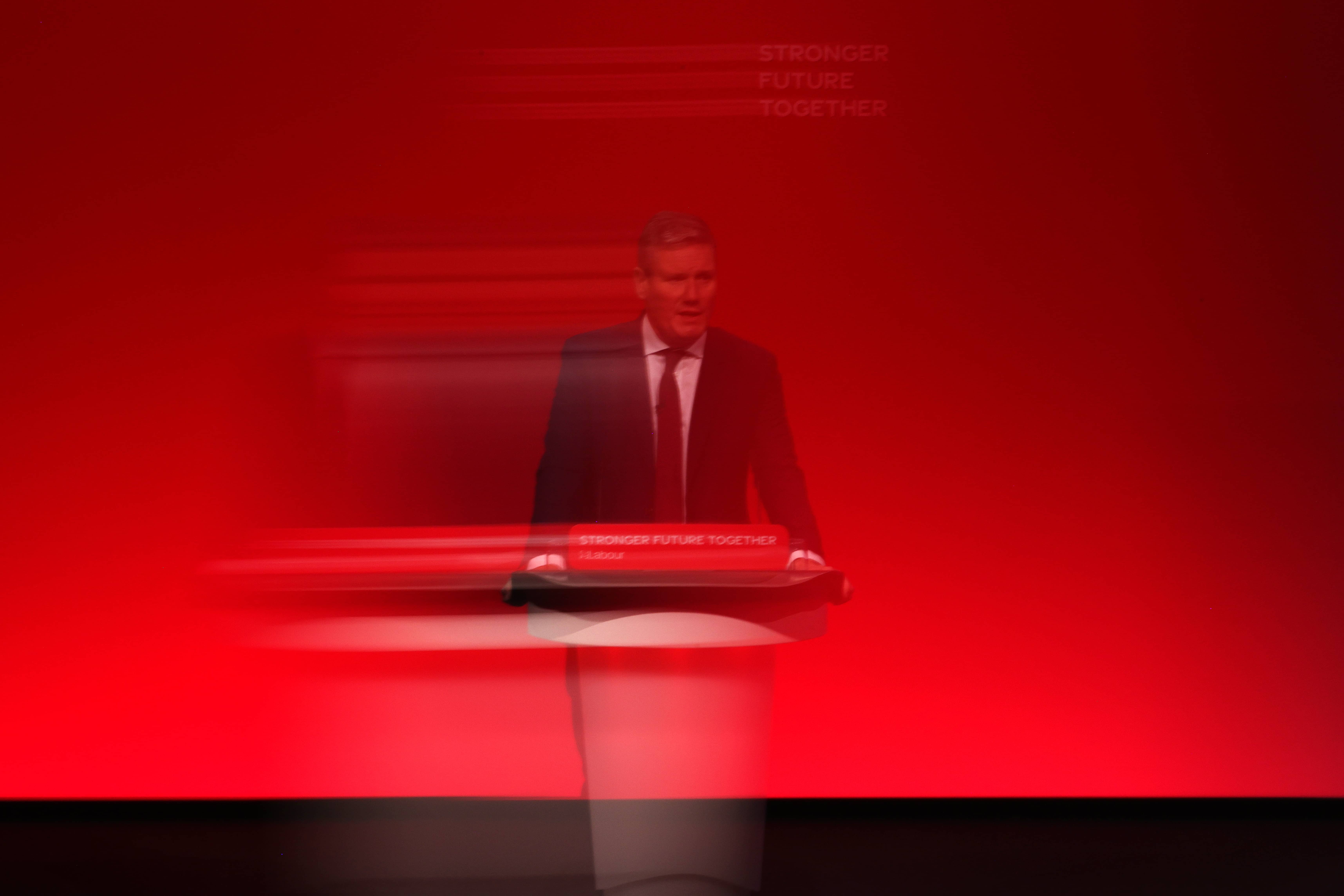There is relief in the opposition leader’s office this morning following a broadly warm reception to Keir Starmer’s speech at Labour conference. An Opinium poll found that when chunks of the speech were surveyed on a group of 1,330 people, 63 per cent agreed with what he had to say and 62 per cent said he was competent. The front pages, too, are encouraging for Starmer with the papers focussing in on his effort to separate himself from Corbynism and learn from the Blair years. The Mirror has hailed it as one step ‘closer to power’, the Times says he made a ‘reasonable fist’ of it while the Sun has blasted Starmer over how long it went on for.
The internal fights have led the news agenda and reminded people what a divided party Labour still is
Given Starmer’s team hoped conference would mark a ‘turning the page’ moment, the bulk of the response is where they would like the focus to be. It has allowed Starmer to end his party’s conference on a much more positive note than how it began. Yet the jury’s out on how much of a boost the whole episode will give Starmer. A Times/YouGov poll out today (the sampling taken on Tuesday and Wednesday) gives the Tories an 8 point lead despite the fuel crisis — with Labour actually dropping one point. As I write in this week’s magazine, Starmer’s failure to focus on the fuel crisis has confused both his own MPs and the wider political world. ‘Why didn’t Starmer start conference at a petrol station in Brighton trying to fill people’s cars?’ one experienced diplomat asked me. ‘It would have been everywhere.’
It is a good question. The fuel crisis is a rare political event that affects most people. Instead, Labour has been doing what it does best: arguing with itself. The conference has been dominated by internal rows about rule changes, a shadow cabinet resignation and whether or not Tories can be called ‘scum’. The overall headlines, beyond just the speech, haven’t been exactly what Team Starmer pictured. The word ‘cervix’ trended on social media after Starmer said in an interview that it was wrong to say only women have one. Shadow chancellor Rachel Reeves’s debut conference speech was overshadowed by the news that Andy McDonald, an ally of the now-exiled Jeremy Corbyn, had quit the shadow cabinet.
Some of Starmer’s allies insist that despite all this the conference went well for them. Starmer succeeded in changing the party rules to make it harder for the left to challenge him or deselect MPs. ‘It’s Starmer’s biggest victory since he became Labour leader,’ says one adviser. It means the leadership will be more confident — as the speech hinted at — about setting out Starmer’s vision even if it risks upsetting the left. But the flipside is that the internal fights have led the news agenda and reminded people what a divided party Labour still is.
Given that ministers are increasingly concerned over a cost of living crisis, Labour could get lucky as the Tories flounder. But few right now would put any big shift in voting intention down as a direct result of effective opposition from Starmer. While Starmer has distanced himself from the Corbyn era, the conference has ultimately served as a reminder of how severe Labour’s problems are and how far away the party is from a solution.








Comments